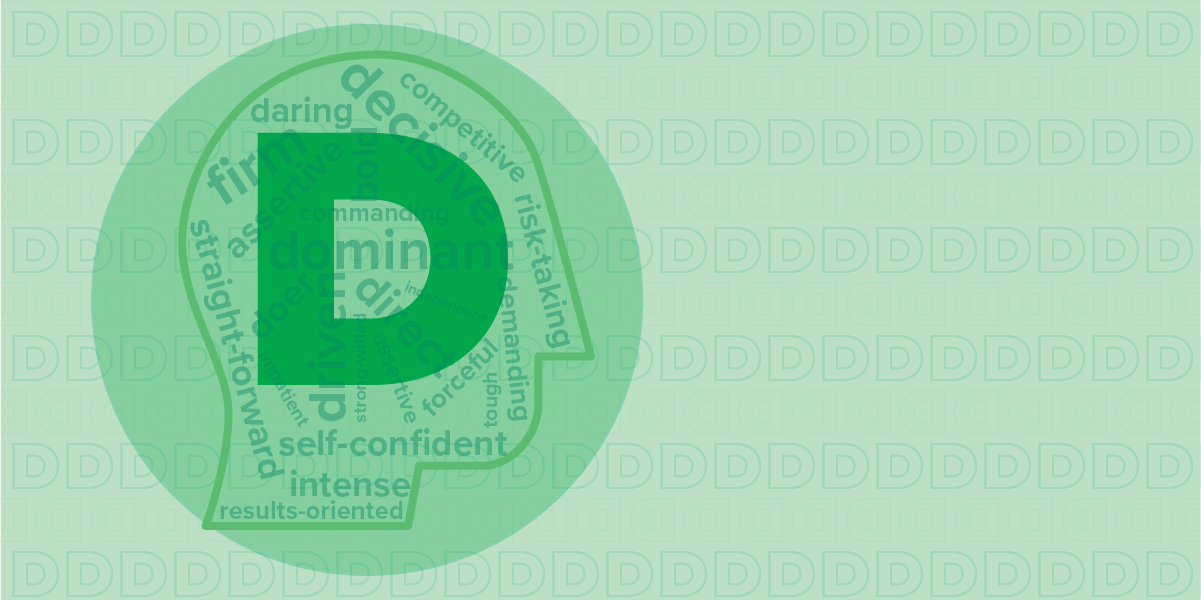
D style
D is for Dominance
People with the DiSC D style personality tend to place a strong emphasis on shaping the environment and overcoming opposition to accomplish results.
“The Winner”
D styles are motivated by winning, competition, and success. They prioritize taking action, accepting challenges, and achieving results and are often described as direct and demanding, strong-willed, driven, and determined. D styles tend to be outspoken, but can be rather skeptical and questioning of others.
- Fears: being seen as vulnerable or being taken advantage of
- Values: competency, action, concrete results, personal freedom, and challenges
- Overuses: the need to win, resulting in win/lose situations
- Influences others by: assertiveness, insistence, competition
- In conflict: speaks up about problems; looks to even the score
- Could improve effectiveness through: patience, empathy
DiSC Classic patterns: Developer, Result-Oriented, Inspirational, Creative
Communicating with a D style
When communicating with DiSC D-style individuals, give them the bottom line right from the start. Be brief. Stay focused. Avoid generalizations. Refrain from repeating yourself. And stick to solutions rather than problems.

